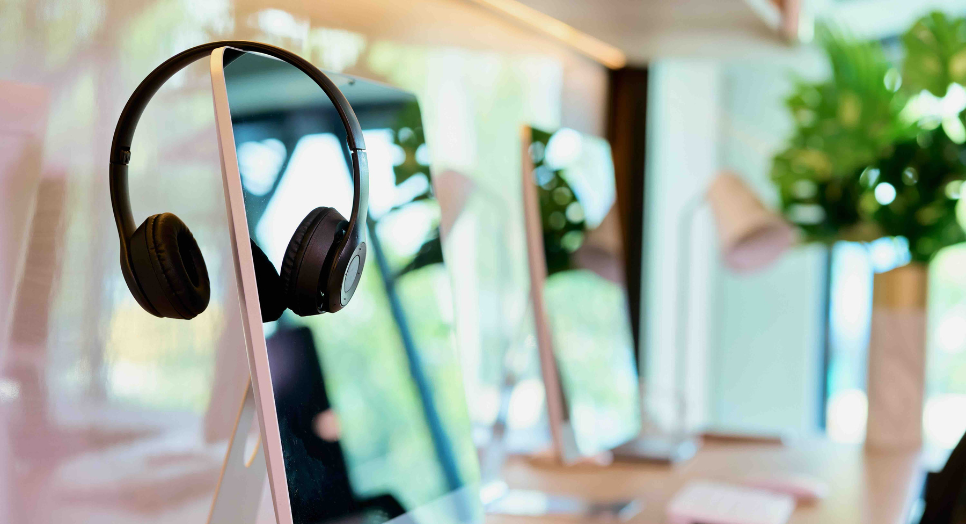3 Types of Music Licensing All Businesses Should Understand

Most businesses want to enlist the power of music to motivate and inspire their customers, but the thorny thicket of music licensing causes understandable hesitation and confusion. What kind of music licensing is necessary to have music on a website? Or in a commercial video? Or to play music during a performance or event? And what about music licensing for small businesses, like restaurants, bars, and stores? Or for fitness companies to enhance workouts?
Here we’ll go over the 3 types of music licenses that you should understand in order to use music effectively and legally for your business.
3 Types of Music Licensing All Businesses Should Understand
Music synchronization licenses for businesses
Music reproduction and distribution licenses for businesses.
Public performance music licenses for businesses.
Disclaimer: Please note this is not a substitute for legal advice, but rather a quick overview of the complex music licensing world.
Almost all the music you hear, and most likely the music you want to use, is copyrighted. This means that one or more parties own the rights to it. Using this music without paying the rightsholders can get your company into very expensive legal problems. In most cases, businesses will need multiple licenses for their company’s music usage, and in fact, may need multiple licenses for even just one song.
To start, one must understand that there are two copyrighted works in every recording. The first is the composition, which includes the notes and words. The composition is generally owned by the songwriter and her music publisher. The second is the sound recording, which is an artist’s recording of a composition. The sound recording is generally owned by the artist or record label.
Now let’s dive into the different licenses that are required for different music uses by businesses.
- Music synchronization licenses for businesses.
If your company wants to use music in a video, film, TV show, or game, you will need a synchronization license. This refers to taking the video content and pairing it with copyrighted music to create an audiovisual work. This includes using music for video posts on your company’s social media accounts. Synchronization licenses are required from both the owner of the composition and the owner of the sound recording.
- Music reproduction and distribution licenses for businesses.
If a business offers consumers the ability to download music that is not paired or synchronized with visual media, then you will need a license for the reproduction and distribution of the music. For compositions, this means obtaining a “mechanical” license. Mechanical licenses require direct deals with the songwriter or music publisher, or an organization representing them. For sound recordings, the license must be obtained through the artist or record label directly. In addition, a reproduction license is required for server copies that may be made to facilitate a public performance. This applies to both compositions and sound recordings.
- Public performance music licenses for businesses.
A public performance license is required for playing music, such as in a store, on an app, on a website or through a live performance. For compositions, public performance licenses are generally obtained through performance rights organizations (PROs), all of which license and collect performance royalties on behalf of thousands of composers they represent. In the United States, the most prominent are ASCAP, BMI, and SESAC. For the sound recording, public performance licenses may be obtained through SoundExchange provided the business does not allow consumers to select individual songs or customize a playlist. SoundExchange also includes a server copy license.
For licenses not offered by SoundExchange, the business must obtain the license from the owner of the sound recording directly. Likewise, a mechanical license must be obtained for any such use in addition to the performance license.
It’s important to note that paid personal streaming services such as Spotify and Apple Music cannot be used to play music publicly in a business setting.
These 3 types of music licenses are applicable for music use in the United States. However, many online uses of music are global in scope, and therefore companies must take into consideration the laws of all the countries in which the music may be heard or downloaded. While there is no unified international protocol for music licensing, the services of an experienced music consultant or lawyer can help your business to use music globally without legal issues.
This is only a brief introduction to the complex world of music licensing. For more detailed information, check out Music Licensing 101 or get in touch with us at Feed.fm.
–
Feed Media Group is for businesses that need licensed popular music to create the most engaging customer experiences in their digital apps and physical spaces. Unlike navigating complex, time-consuming negotiations with music labels and publishers, Feed Media Group’s proprietary streaming platform and SDKs deliver pre-cleared music—compiled by the industry’s best curators—complete with user analytics, payments to rightsholders, and legal indemnification for our customers.
Feed.fm powers music for the world’s leading brands including American Eagle Outfitters, Mayo Clinic, Mirror, Nautilus and Tonal; and up-and-coming startups use Adaptr to create unique music-based experiences. Our music partners include Warner, BMG, and Merlin. Learn more at feedmediagroup.com.


 2 min
2 min